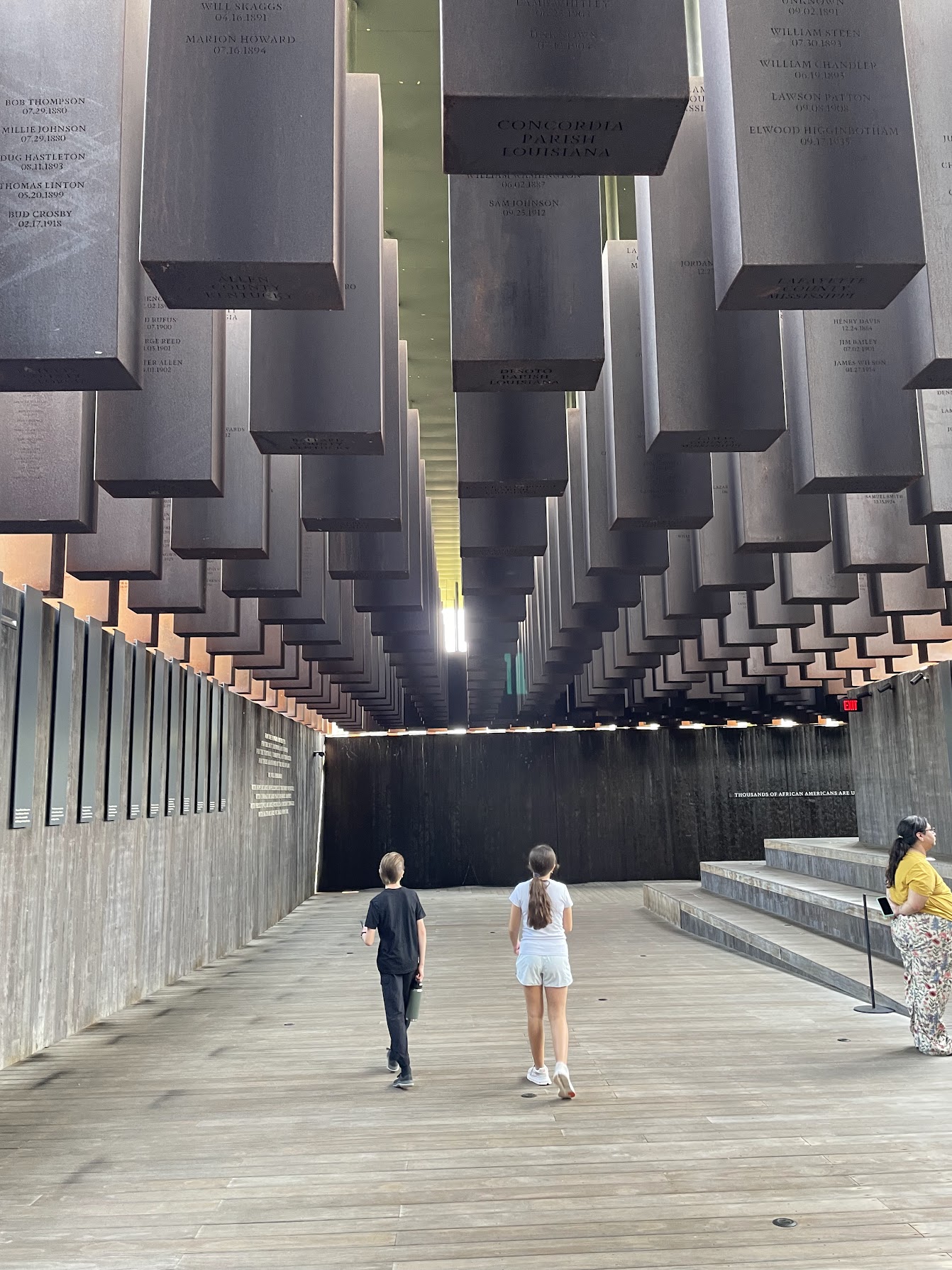
Rashi’s seventh graders experienced the historic south as it pertains to the US Civil Rights Movement. During this annual trip, students visited important sites such as 16th Street Baptist Church, the Edmund Pettus Bridge, and the Brown Chapel A.M.E. Church.
The group also had the honor of meeting Pastor Gwen Cook Webb, who marched alongside hundreds of students during the Birmingham Children’s Crusade in 1963. Our students wowed Pastor Webb with questions on civil disobedience, religion, and personal fortitude in the face of grave injustice. They eagerly absorbed the lessons of their trip guides and guest teachers, and applied what they have learned at Rashi to further enrich their experiences.
Read below for reflections on the trip from our Middle School students.
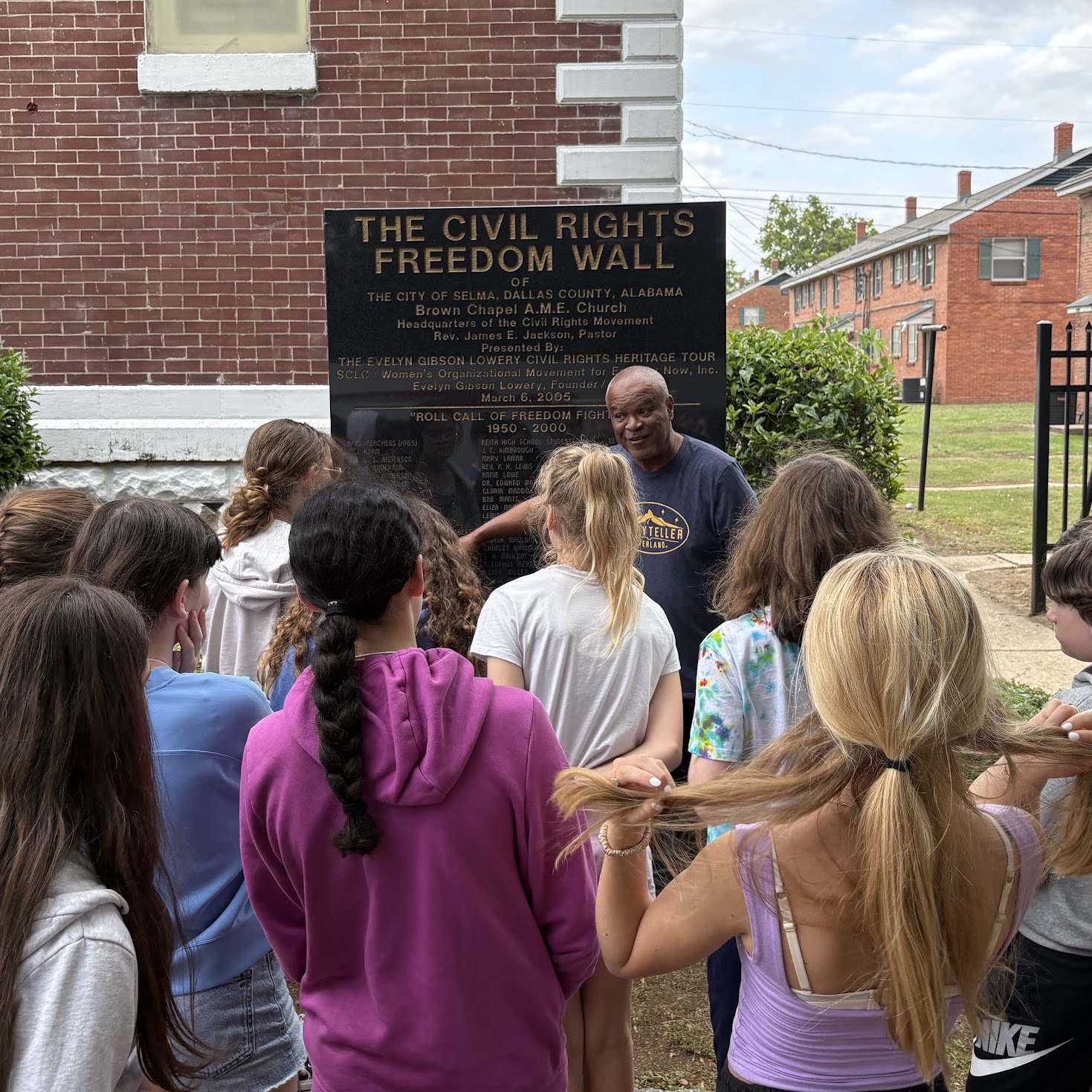
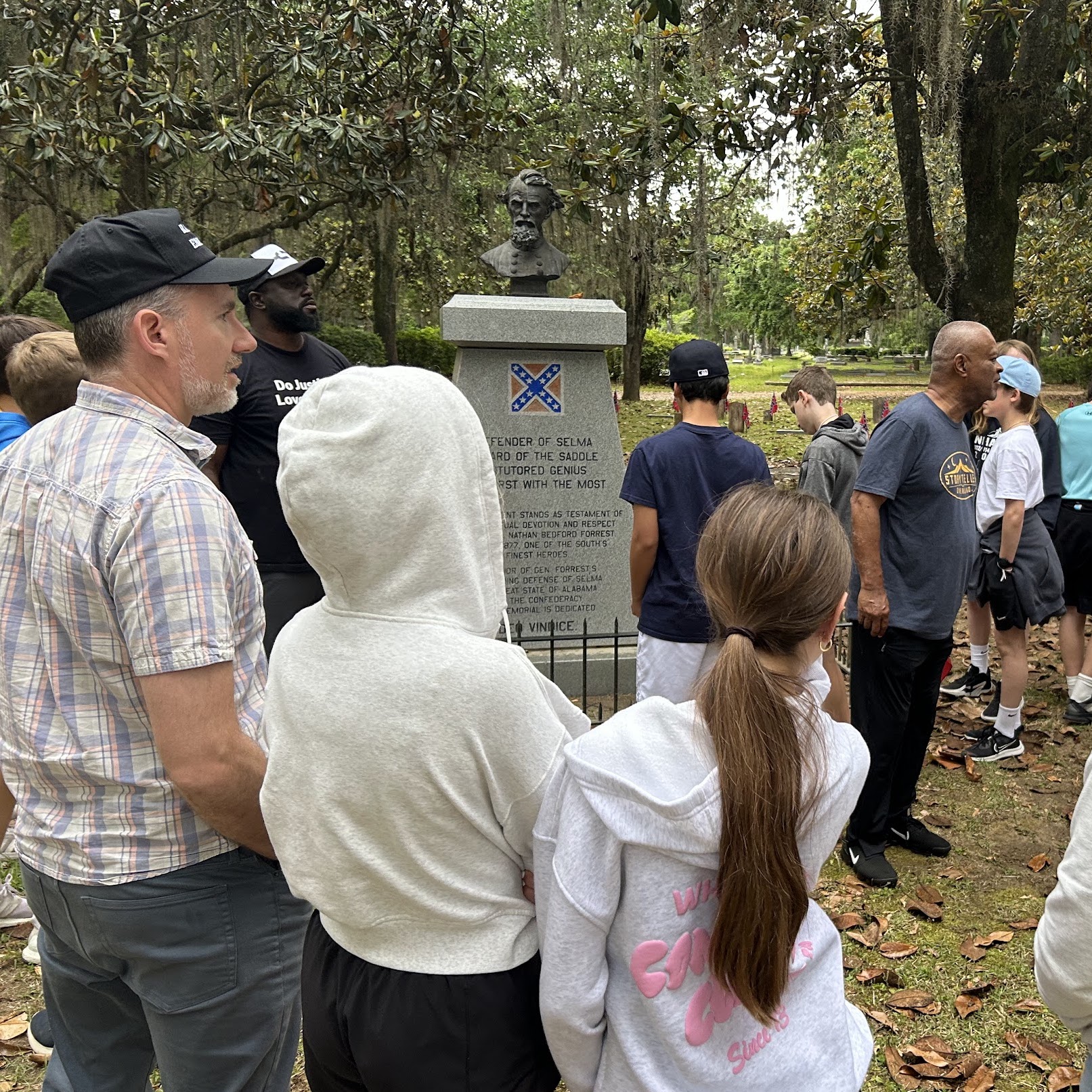
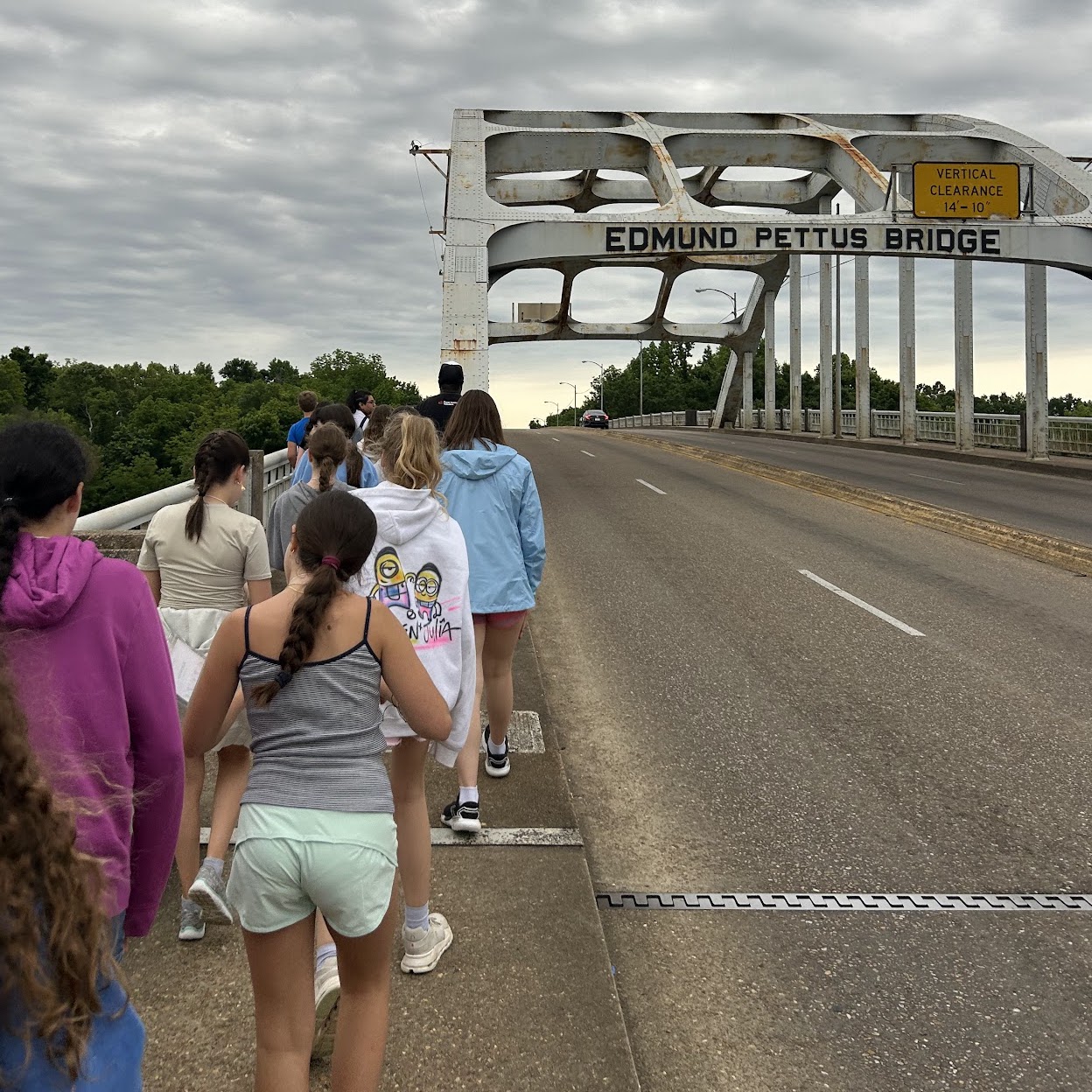
Learning from all these first hand sources challenged my mind immensely on this trip. When we learned about different topics regarding the Civil Rights movement and slavery in class, we were just listening to stories and reading articles but it hits different once a member of the Children’s Crusade is speaking to you or you are walking across the Edmund Pettus Bridge after talking to someone who walked across the bridge himself. This made me really step into the shoes of people living in these times.
-Noa F.
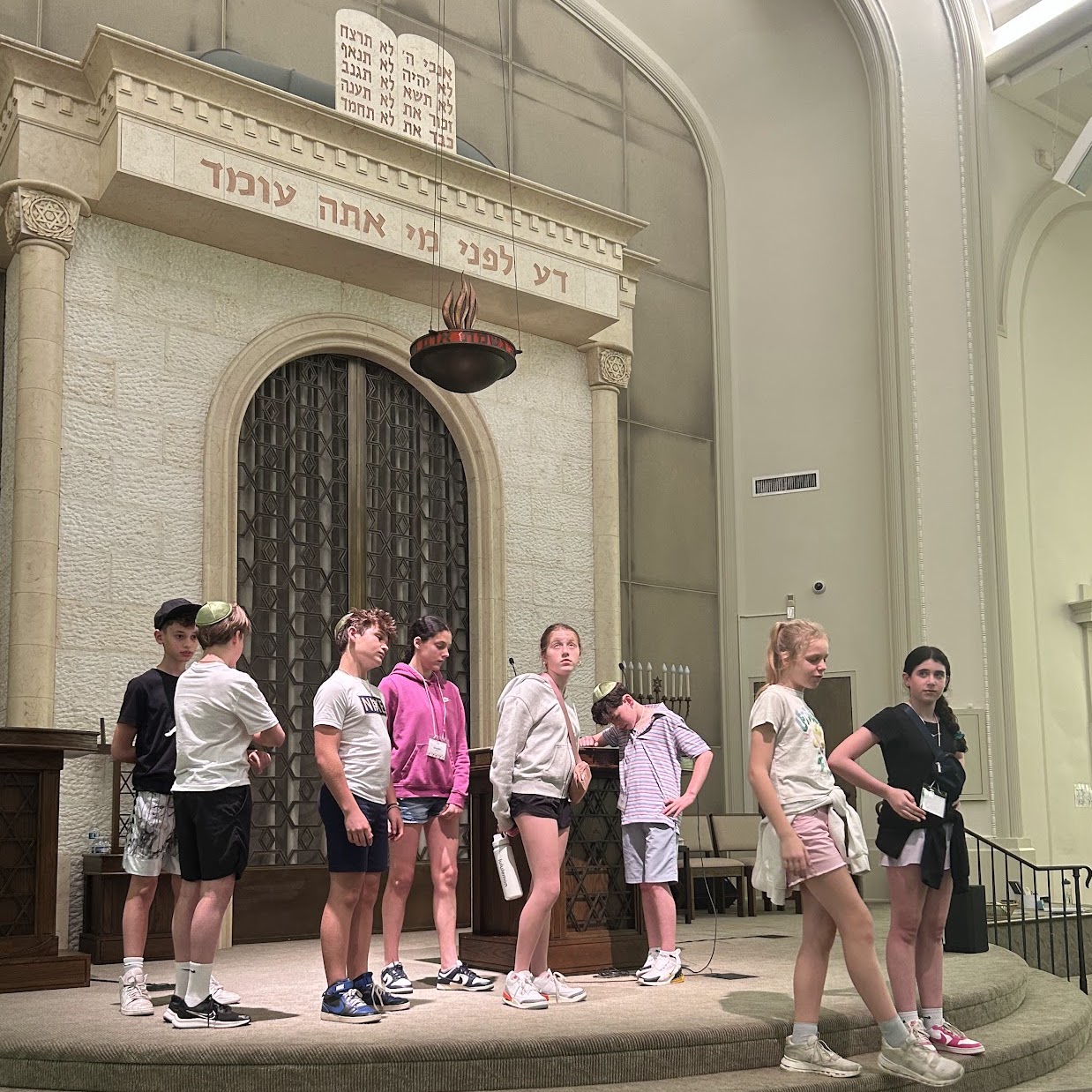
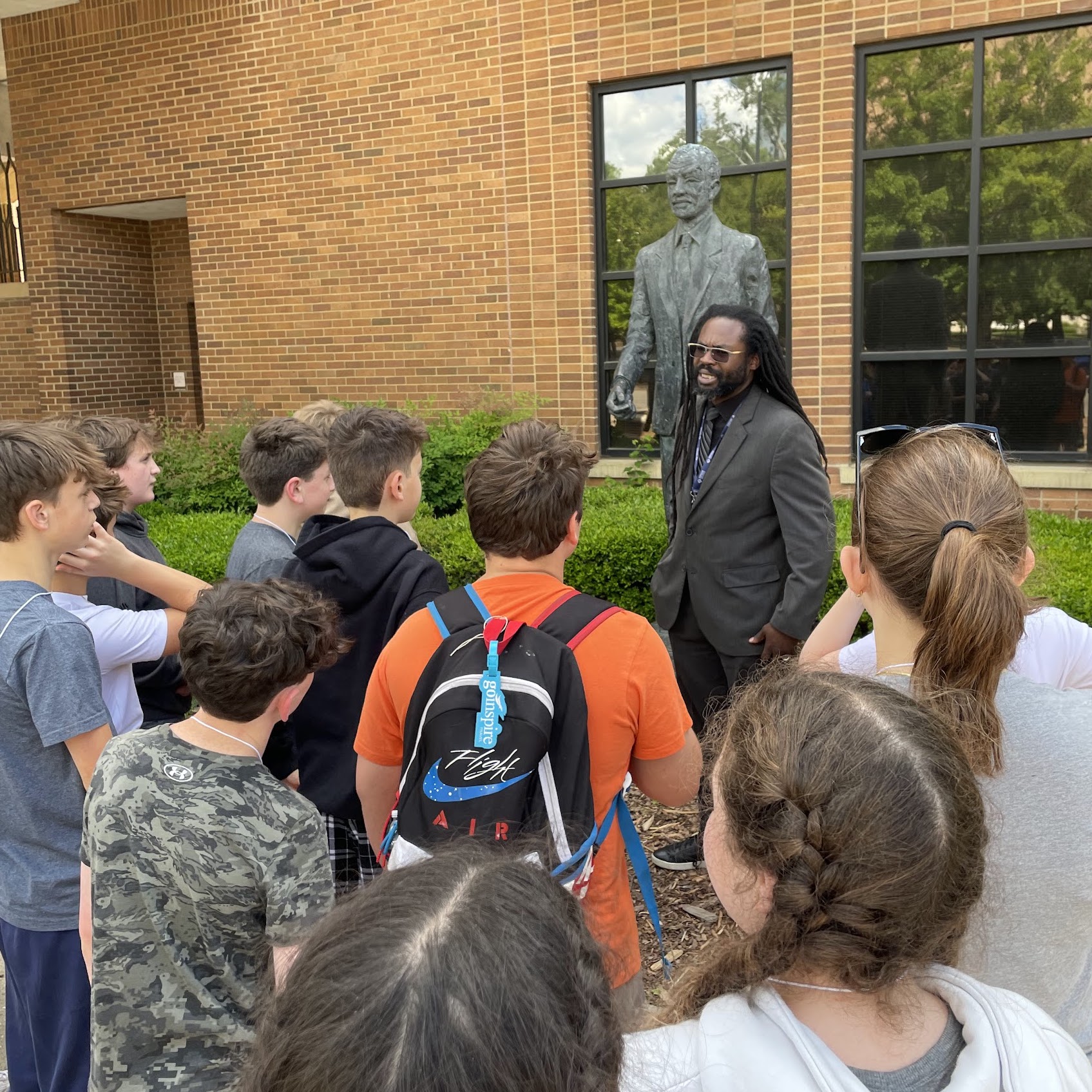
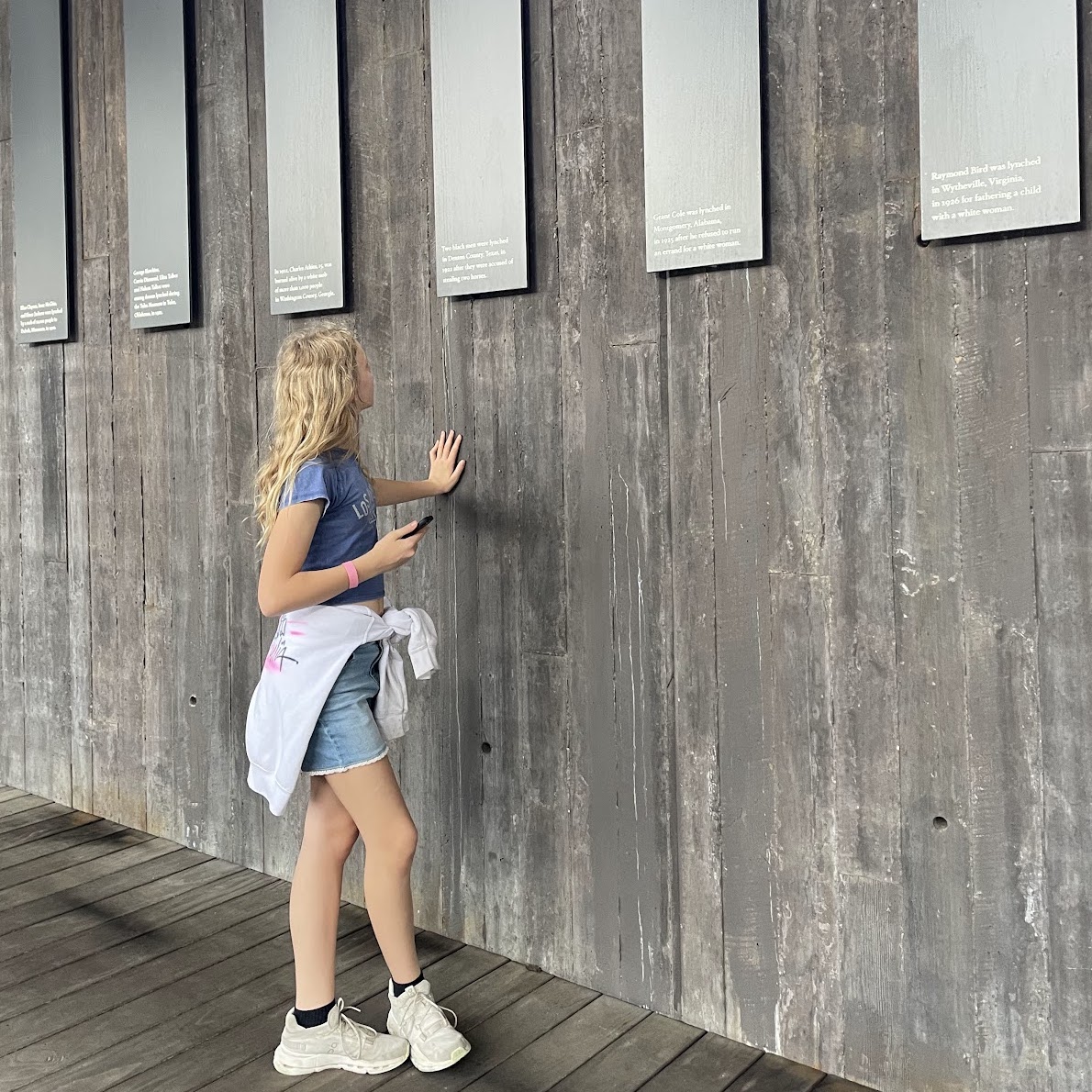
We were able to see the places where things actually happened, instead of sitting in a classroom thinking about it. We were able to meet people, like Pastor Gwen Webb, and others involved in the Bloody Sunday march [across the Edmund Pettus Bridge], which made the experience very human, and it made it much easier to empathize with Civil Rights activists–real people–instead of facts and dates on a page. This was especially the case when we walked the Edmund Pettus Bridge. It was very powerful for me to literally walk in the footsteps of Civil Rights activists.
-Anonymous
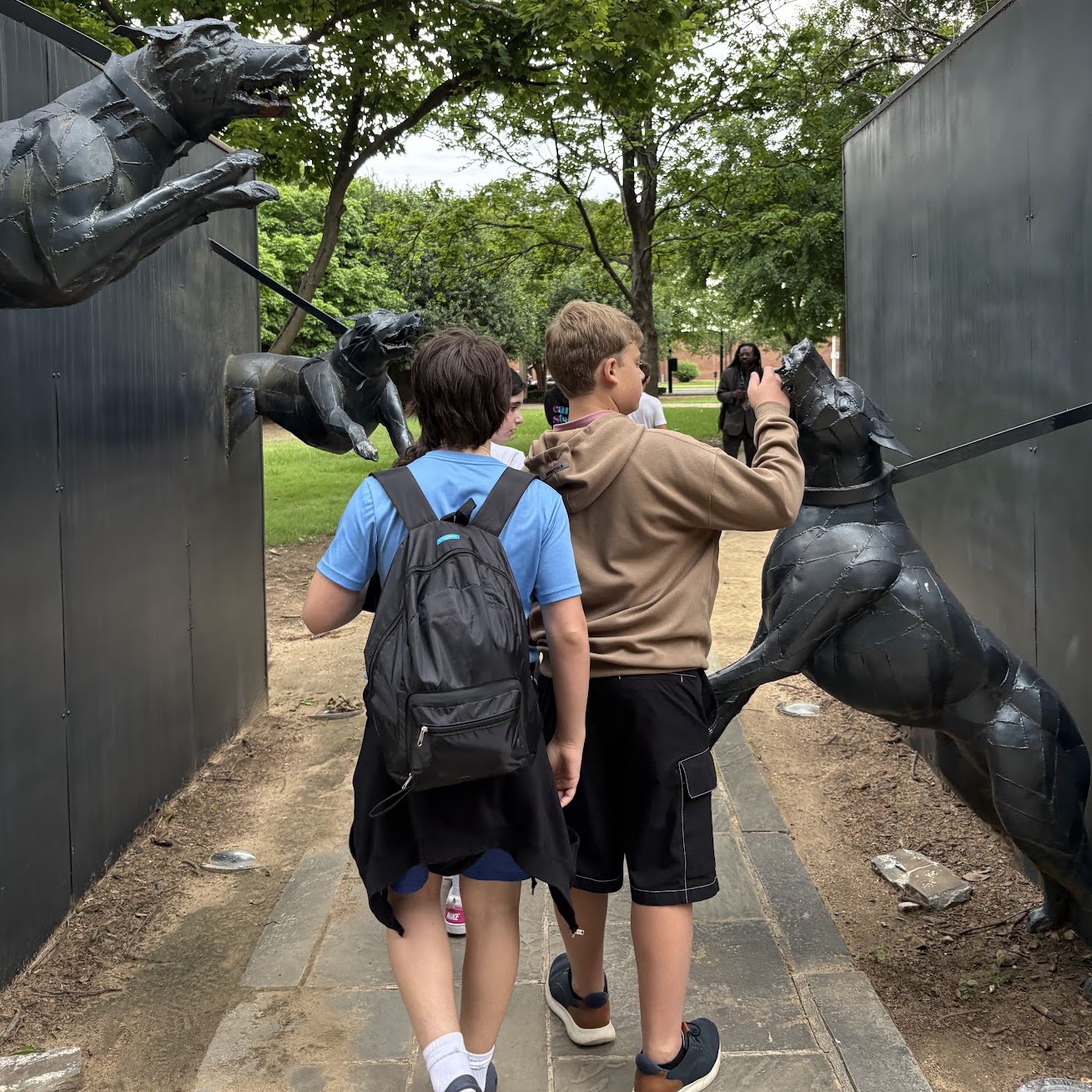
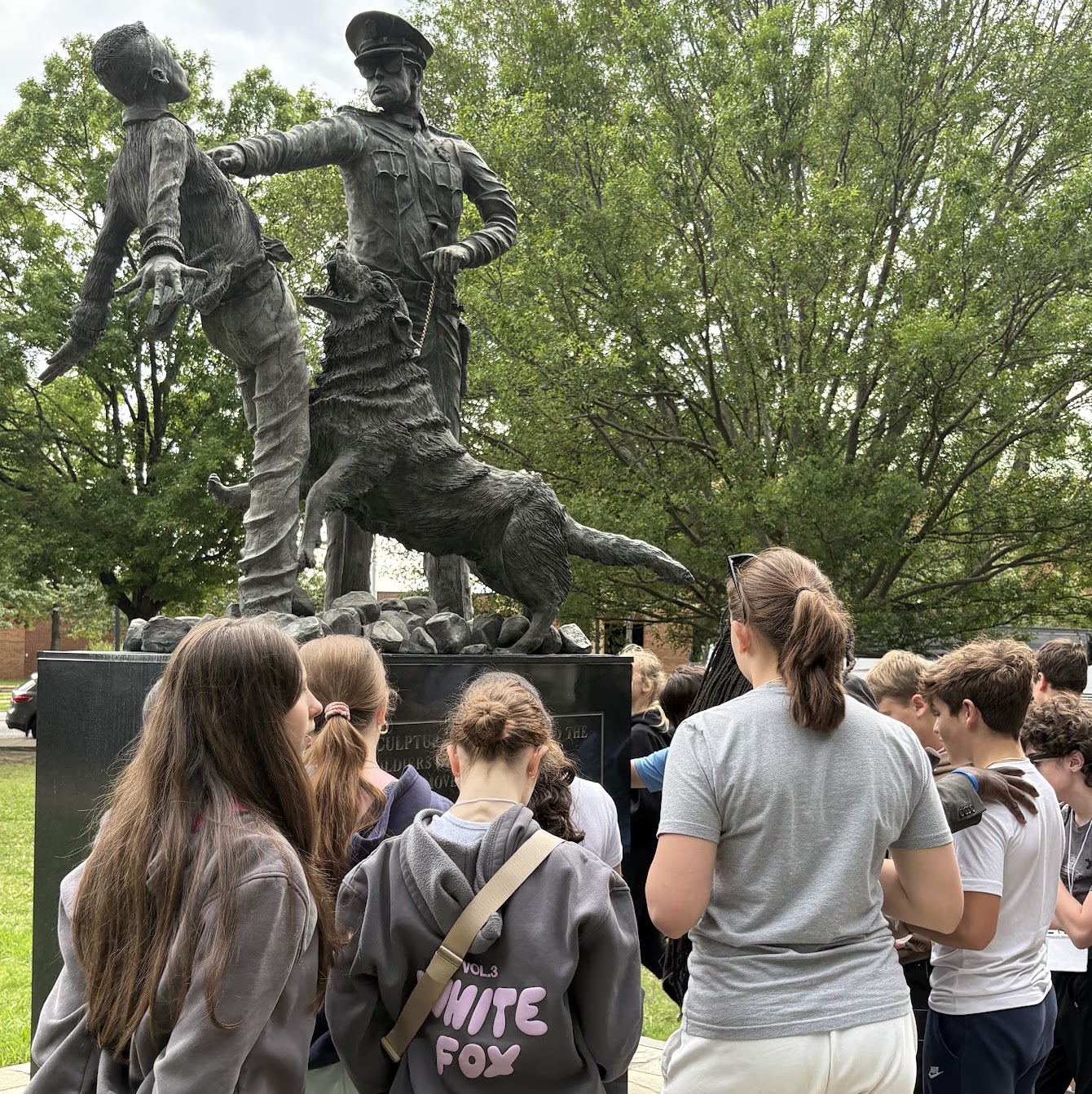
I think the quote “Not everything that is faced can be changed, but nothing can be changed until it is faced” means that you sometimes can’t change everything, but you can’t change anything if you don’t try. I don’t agree with this quote, because after visiting Alabama and seeing what many of these Civil Rights activists went through, I think that everything can be changed if it is faced. Sometimes, it may take years, lifetimes, millenia, but I believe everything can eventually be changed. It wasn’t easy, but they eventually succeeded. Not for them, but for the next generations. It may have taken many years, and many activists (like Fredrick Douglass) didn’t see the change in their lifetime, but it eventually did change, and this movement, this movement just proves that if you want it enough, anyone can change anything. Anything.
-Lexi K.
Want Your Child to Experience Learning Like This?
Click here to learn more about the Rashi Middle School journey.

